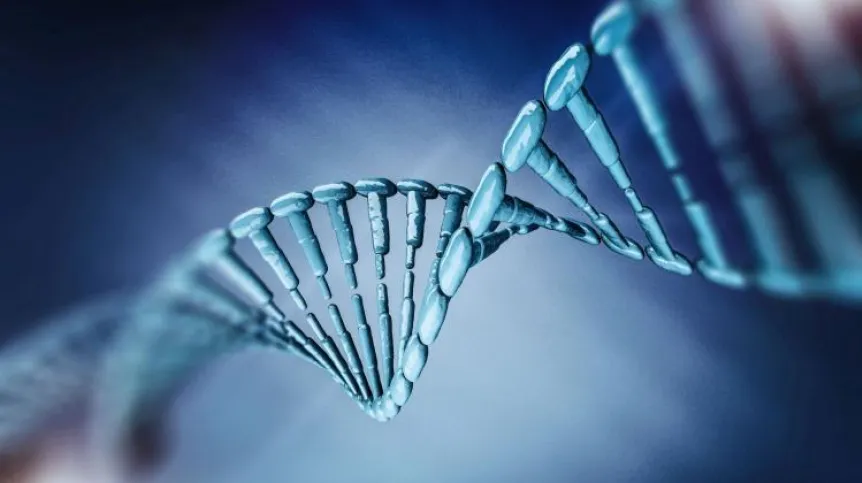
International research has revealed 13 locations in the human genome that are clearly associated with COVID-19 infection.
Beginning in March 2020, over 3,500 specialists from over 1,200 centres teamed up to try and explain why some sufferers develop severe, life-threatening disease requiring hospitalisation while others escape with mild symptoms or none at all.
Involving nearly 50,000 COVID-19 patients and two million uninfected controls, a comprehensive summary of their findings to date was presented last week in Nature in which they identified 13 loci (locations in the genome) strongly associated with COVID-19 infection and its severe course.
Two of them are more frequent in patients with East Asian or South Asian origin than Europeans.
The team paid particular attention to one of these two loci, near the FOXP4 gene, which is associated with lung cancer. The FOXP4 variant associated with severe COVID-19 increases the expression of the gene, which suggests that the inhibition of the gene may be a potential therapeutic strategy.
Other loci associated with severe COVID-19 included DPP9, another gene involved in lung cancer and pulmonary fibrosis, and TYK2, which is associated with some autoimmune diseases.
Researchers also identified such causal factors such as smoking and high body mass index.
The information, which could help help in developing a treatment for the virus, including a reduction of the activity of certain genes related to the risk of Sars-Cov-2 infection or severe COVID-19.
Ben Neale, co-director of the Program in Medical and Population Genetics at the Broad Institute and co-senior author of the study, said that while vaccines confer protection against infection, there is still substantial room for improvement in COVID-19 treatment, which can be informed by genetic analysis. He added that improving treatment approaches could help shift the pandemic - which has necessitated large shutdowns in much of the world - to an endemic disease that is more localized and present at low but consistent levels in the population, much like the flu.
He said: “If we had a mechanism of treating infection and getting someone out of the hospital, that would radically alter our public health response.
“These discoveries have been really informative and that has made us realize that there's a lot of untapped potential in using genetics to understand and potentially develop therapeutics for infectious disease.”
Mark Daly, director of the Institute for Molecular Medicine Finland (FIMM) added: “I hope this sets an example for how we might bring population genetics approaches to a new set of problems that are especially important in developing parts of the world.
“We've been much more successful than past efforts in sampling genetic diversity because we've made a concerted effort to reach out to populations around the world.”
Launched by the University of Helsinki, MIT and Harvard, the COVID-19 Host Genomics Initiative has grown and currently includes 61 studies from 25 countries, two of them from Poland.
One from the Central Clinical Hospital of the Ministry of Interior and Administration in Warsaw, MNM Diagnostics and the Jozef Strus Municipal Hospital in Poznań, and titled 'Search for genomic markers predicting the severity of the response to COVID-19' is being prepared for publication.
Professor Zbigniew Król, deputy clinical and scientific director of the Central Clinical Hospital of the Ministry of Interior and Administration, said the largest value of the publication is the confirmation that certain variants of genes are associated with a higher risk of severe COVID-19.
Professor Marek Sanak from the Jagiellonian University Medical College, head of Department of Molecular Biology and Clinical Genetics said: “The Warsaw team joined the international consortium and contributed its data to this study - nearly 1,000 genomes. These are impressive and very reliable data that we use to predict the risk of severe disease.”
The second Polish project POLCOVID-Genomika is headed by Professor Marcin Moniuszka from the Medical University of Bialystok and Dr. Mirosław Kwaśniewski from the same university and IMAGENE.ME.
As part of this project, researchers carried out advanced association analyses to identify clinical traits and genetic variants related to severe COVID-19 in the Polish population. Research was carried out in cooperation with the Institute of Tuberculosis and Lung Diseases in Warsaw and 15 Polish clinical units. Very precise genome profiling using whole exome sequencing (WES) was performed on over 1,400 patients infected with SARS-CoV-2 with a different clinical course of COVID-19. Based on several phenotypic, clinical and genetic parameters, researchers developed a model to estimate the risk of severe COVID-19. The mathematical model has been converted into a risk calculator that could be used throughout Poland.
Co-author of the publication, Dr. Karolina Chwiałkowska from the University Medical in Bialystok which supported the management of the consortium, said: “It was necessary to efficiently organize the entire HGI consortium in terms of the supervision of partner projects, administration, the flow of information between members and the provision of direct communication channels, administration of genomic data and ongoing sharing of meta-analysis results.”
Researchers now plan further research on vulnerability to infection and severe forms of the disease, as well as long-lasting symptoms.
Mark Daly from the Institute for Molecular Medicine Finland said: “We'd like to aim to get a good handful of very concrete therapeutic hypotheses in the next year. Realistically, we will most likely be addressing COVID-19 as a serious health concern for a long time. Any therapy that emerges this year, for example from repurposing an existing drug based on clear genetic insights, would have a great impact.”
Find out more at: https://www.covid19hg.org/ and https://www.medrxiv.org/content/10.1101/2021.03.10.21252820v2
PAP - Science in Poland, Marek Matacz, Urszula Kaczorowska
mat/ zan/ uka/ agt/ kap/
tr. RL













